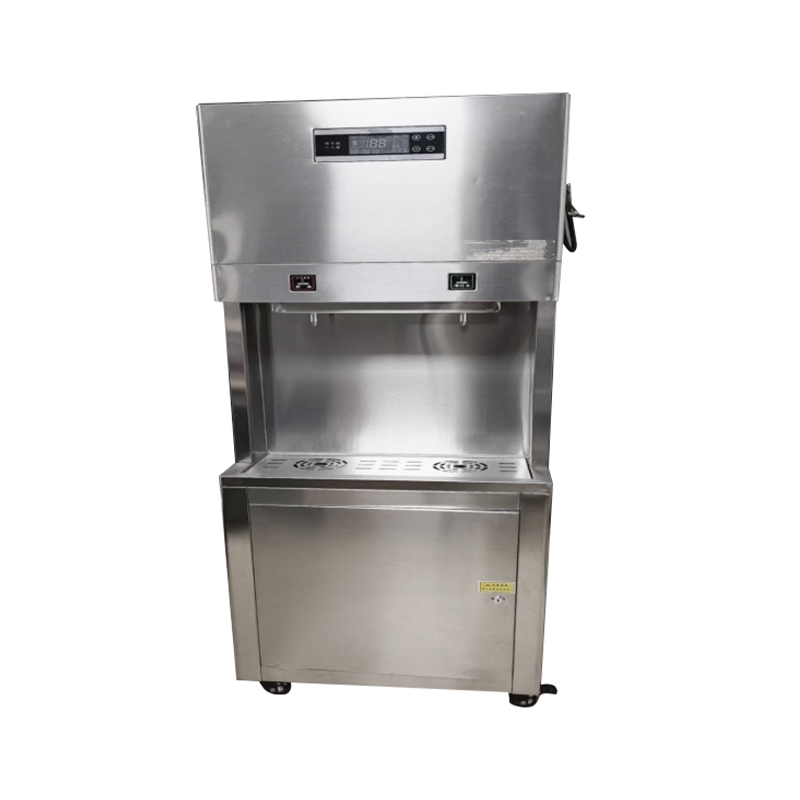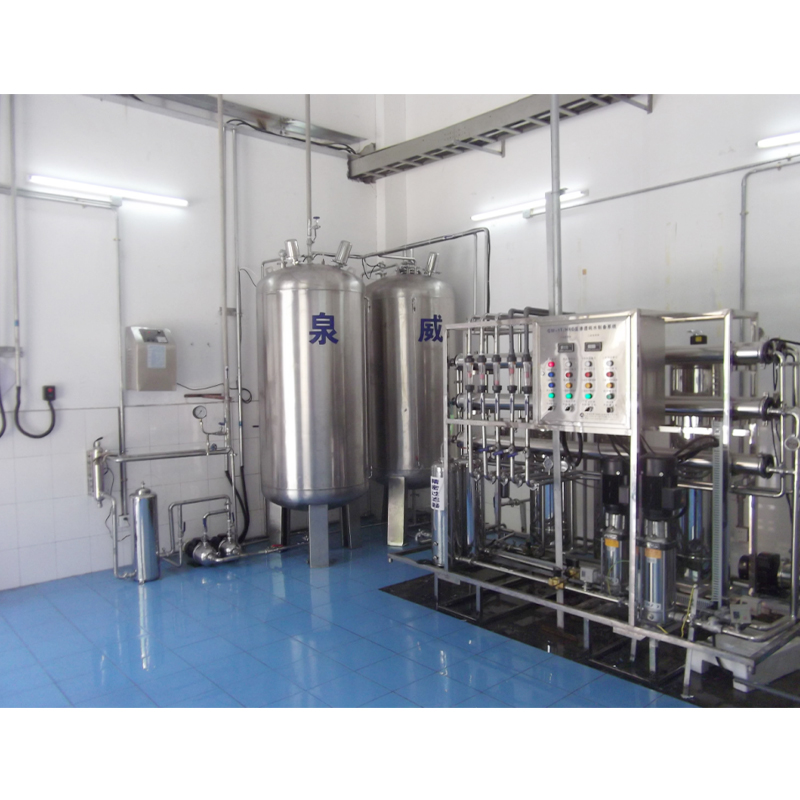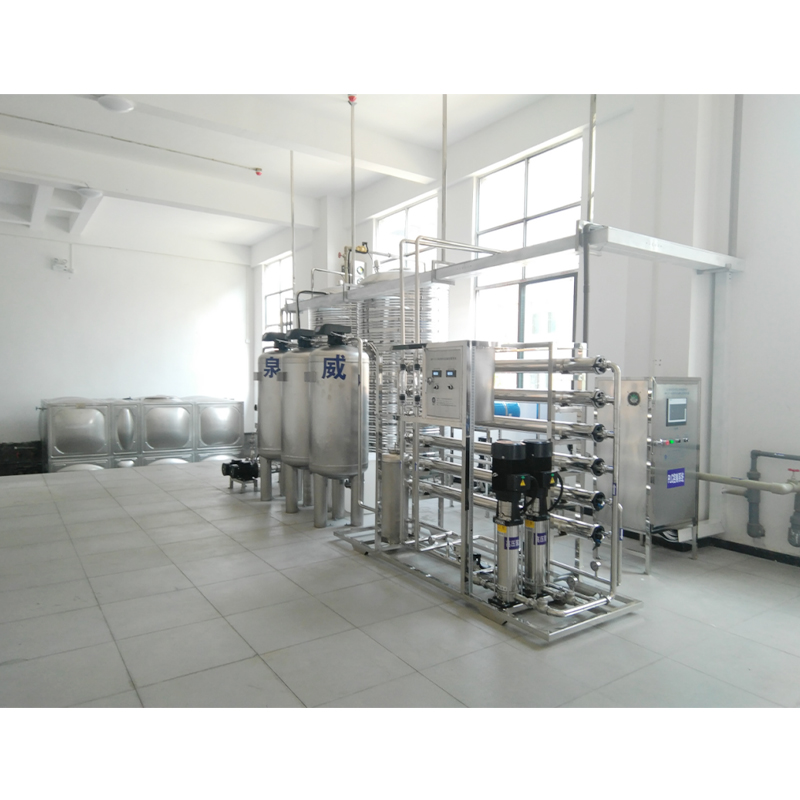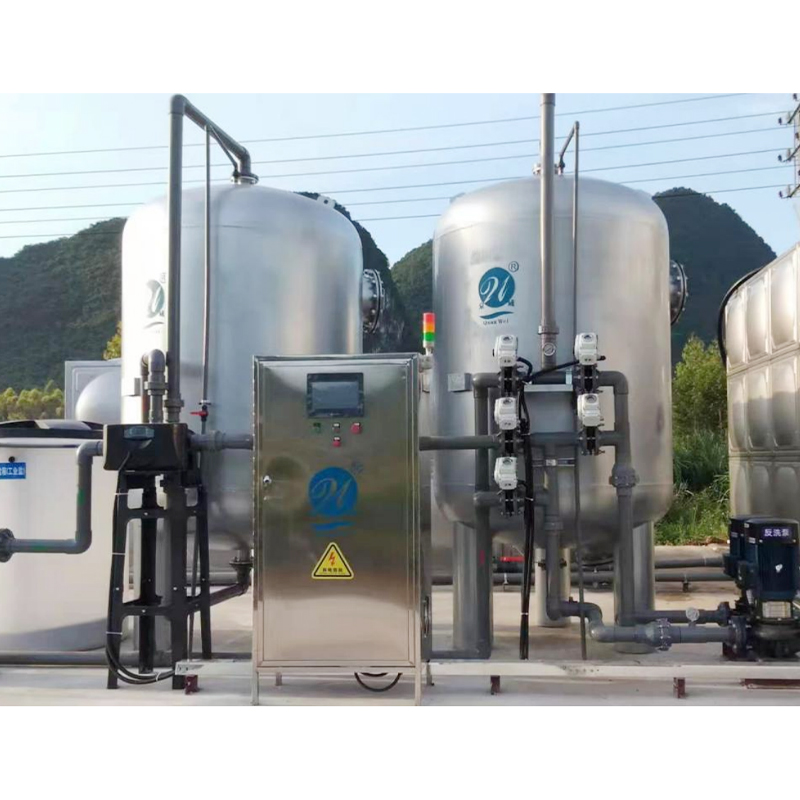What contributions does commercial water dispenser make to environmental protection?
Release Time : 2025-06-25
As global awareness of environmental protection increases, more and more companies and individuals are beginning to pay attention to how to reduce the impact of daily activities on the environment. As an efficient and convenient drinking water solution, commercial water dispenser not only improves the user's drinking experience, but also makes significant contributions to environmental protection in many aspects.
1. Reduce the use of plastic bottled water
Plastic bottled water is one of the common sources of drinking water in modern life, but its production, transportation and treatment process imposes a huge burden on the environment. According to statistics, only a small number of the billions of plastic bottles produced worldwide each year are recycled, and most of the rest eventually flow into landfills or oceans, causing serious environmental pollution problems.
In contrast, commercial water dispensers can effectively replace the demand for disposable plastic bottled water by providing high-quality filtered water sources. Whether in offices, schools or public places, after installing commercial water dispensers, people can get clean and safe drinking water directly from the device, reducing their dependence on plastic bottled water, thereby greatly reducing the amount of plastic waste generated.
2. Save water resources
In addition to reducing the use of plastic bottled water, commercial water dispensers can also play an important role in saving water resources. Many advanced commercial water dispensers are equipped with efficient filtration systems that can remove impurities, heavy metals and harmful substances in water while retaining mineral components that are beneficial to the human body. This means that the treated water is not only healthier, but can also be drunk directly without the need for additional boiling or other treatment steps, avoiding the waste of water resources.
In addition, some high-end commercial water dispensers also have water-saving functions, such as intelligent sensing water outlet, timed automatic cleaning and other designs, which further improve the utilization rate of water resources and reduce unnecessary waste.
3. Reduce energy consumption
Commercial water dispensers usually integrate heating and cooling functions to meet the needs of different occasions. However, traditional heating and cooling equipment often has high energy consumption and increases carbon emissions. To cope with this problem, modern commercial water dispensers use a variety of energy-saving technologies, such as:
Heat exchange technology: preheating the water source by recovering the heat released when hot water is cooled, thereby improving heating efficiency.
Intelligent temperature control system: automatically adjusts heating or cooling power according to actual water demand to avoid unnecessary energy loss.
Standby mode: automatically enters low power consumption state during off-peak hours to reduce energy waste.
The application of these innovative technologies enables commercial water dispensers to provide convenience while significantly reducing energy consumption, which helps promote green office and sustainable development.
4. Reduce carbon footprint
The widespread use of commercial water dispensers is of great significance to reducing the carbon footprint of enterprises. On the one hand, due to the reduced dependence on plastic bottled water, enterprises no longer need to frequently purchase and transport large quantities of bottled water, thereby reducing greenhouse gas emissions caused by logistics and transportation; on the other hand, by adopting energy-saving technologies and optimizing operating models, commercial water dispensers can further reduce their own energy consumption levels while ensuring service quality, indirectly reducing carbon emissions caused by electricity consumption.
In addition, some manufacturers are also committed to developing more environmentally friendly product lines, such as using renewable materials to manufacture shells and adopting fluorine-free refrigerants, etc., striving to minimize the impact on the environment throughout the life cycle.
5. Promote the development of circular economy
Commercial water dispensers not only help reduce resource waste, but also promote the development of circular economy. First, in the product design stage, manufacturers can use modular design concepts to make each component easy to disassemble and replace, thereby extending the service life of the equipment; second, in the waste treatment link, the main components of commercial water dispensers (such as filter elements, housings, etc.) are mostly made of recyclable materials, which are convenient for later recycling and reuse, reducing the amount of electronic waste.
At the same time, with the rise of the sharing economy model, more and more companies are trying to rent rather than buy commercial water dispenser services. This model not only reduces the user's initial investment cost, but also promotes the recycling of equipment and maximizes the use of resources.
In summary, commercial water dispensers have made many contributions to environmental protection: they effectively reduce the use of plastic bottled water, save precious water resources, reduce energy consumption, and through a series of technological innovations, help enterprises and all sectors of society move towards a low-carbon, sustainable development path.
1. Reduce the use of plastic bottled water
Plastic bottled water is one of the common sources of drinking water in modern life, but its production, transportation and treatment process imposes a huge burden on the environment. According to statistics, only a small number of the billions of plastic bottles produced worldwide each year are recycled, and most of the rest eventually flow into landfills or oceans, causing serious environmental pollution problems.
In contrast, commercial water dispensers can effectively replace the demand for disposable plastic bottled water by providing high-quality filtered water sources. Whether in offices, schools or public places, after installing commercial water dispensers, people can get clean and safe drinking water directly from the device, reducing their dependence on plastic bottled water, thereby greatly reducing the amount of plastic waste generated.
2. Save water resources
In addition to reducing the use of plastic bottled water, commercial water dispensers can also play an important role in saving water resources. Many advanced commercial water dispensers are equipped with efficient filtration systems that can remove impurities, heavy metals and harmful substances in water while retaining mineral components that are beneficial to the human body. This means that the treated water is not only healthier, but can also be drunk directly without the need for additional boiling or other treatment steps, avoiding the waste of water resources.
In addition, some high-end commercial water dispensers also have water-saving functions, such as intelligent sensing water outlet, timed automatic cleaning and other designs, which further improve the utilization rate of water resources and reduce unnecessary waste.
3. Reduce energy consumption
Commercial water dispensers usually integrate heating and cooling functions to meet the needs of different occasions. However, traditional heating and cooling equipment often has high energy consumption and increases carbon emissions. To cope with this problem, modern commercial water dispensers use a variety of energy-saving technologies, such as:
Heat exchange technology: preheating the water source by recovering the heat released when hot water is cooled, thereby improving heating efficiency.
Intelligent temperature control system: automatically adjusts heating or cooling power according to actual water demand to avoid unnecessary energy loss.
Standby mode: automatically enters low power consumption state during off-peak hours to reduce energy waste.
The application of these innovative technologies enables commercial water dispensers to provide convenience while significantly reducing energy consumption, which helps promote green office and sustainable development.
4. Reduce carbon footprint
The widespread use of commercial water dispensers is of great significance to reducing the carbon footprint of enterprises. On the one hand, due to the reduced dependence on plastic bottled water, enterprises no longer need to frequently purchase and transport large quantities of bottled water, thereby reducing greenhouse gas emissions caused by logistics and transportation; on the other hand, by adopting energy-saving technologies and optimizing operating models, commercial water dispensers can further reduce their own energy consumption levels while ensuring service quality, indirectly reducing carbon emissions caused by electricity consumption.
In addition, some manufacturers are also committed to developing more environmentally friendly product lines, such as using renewable materials to manufacture shells and adopting fluorine-free refrigerants, etc., striving to minimize the impact on the environment throughout the life cycle.
5. Promote the development of circular economy
Commercial water dispensers not only help reduce resource waste, but also promote the development of circular economy. First, in the product design stage, manufacturers can use modular design concepts to make each component easy to disassemble and replace, thereby extending the service life of the equipment; second, in the waste treatment link, the main components of commercial water dispensers (such as filter elements, housings, etc.) are mostly made of recyclable materials, which are convenient for later recycling and reuse, reducing the amount of electronic waste.
At the same time, with the rise of the sharing economy model, more and more companies are trying to rent rather than buy commercial water dispenser services. This model not only reduces the user's initial investment cost, but also promotes the recycling of equipment and maximizes the use of resources.
In summary, commercial water dispensers have made many contributions to environmental protection: they effectively reduce the use of plastic bottled water, save precious water resources, reduce energy consumption, and through a series of technological innovations, help enterprises and all sectors of society move towards a low-carbon, sustainable development path.







